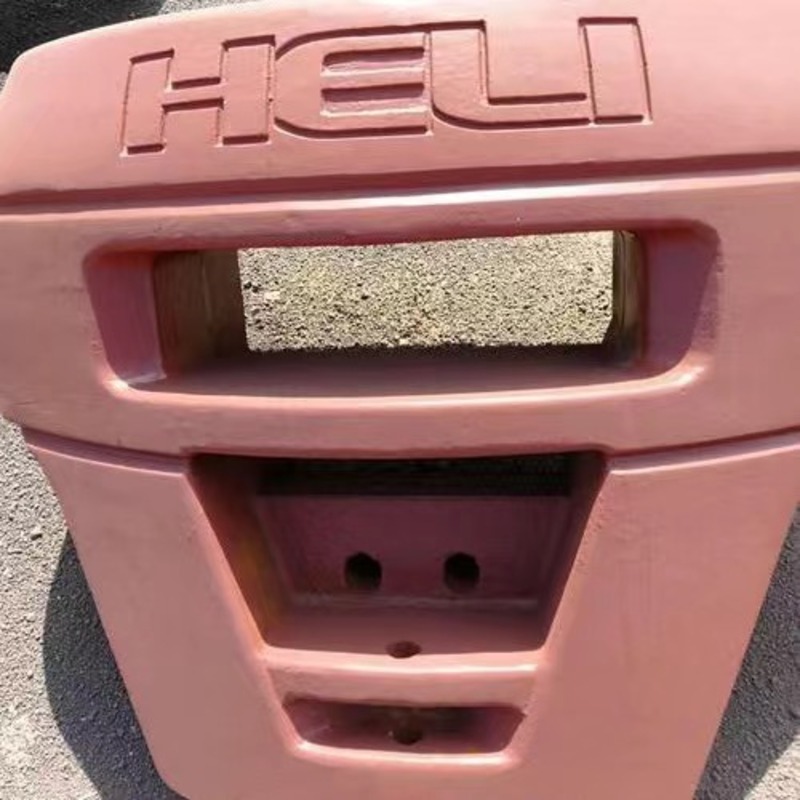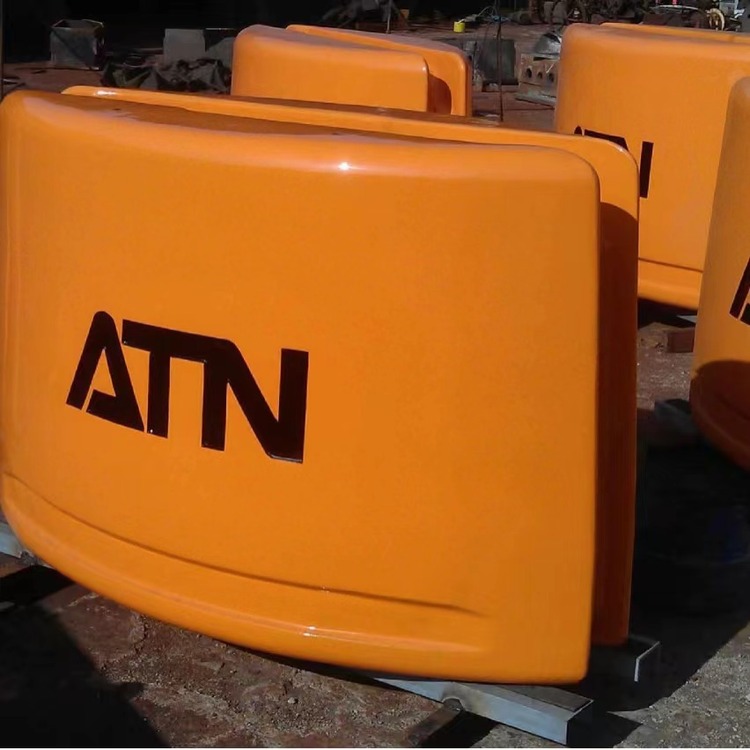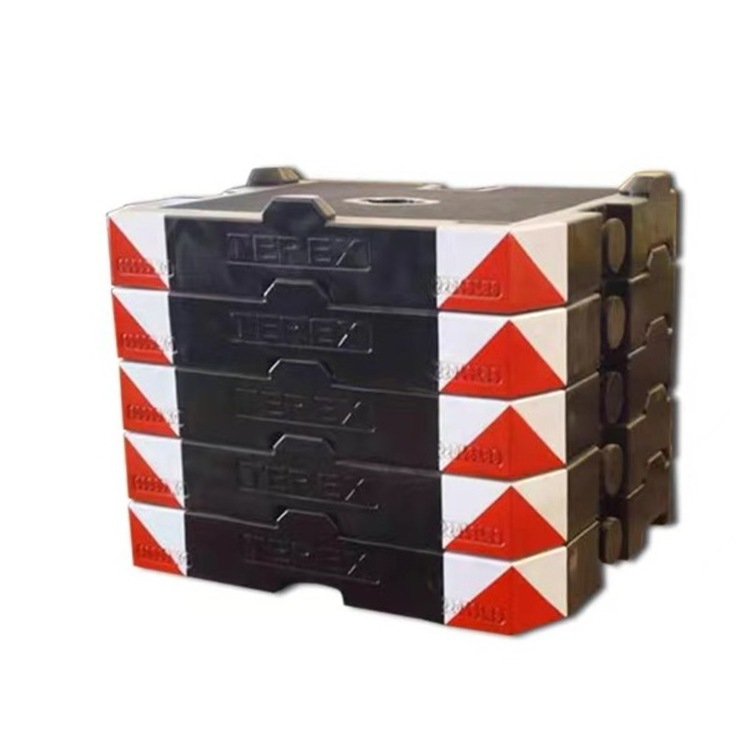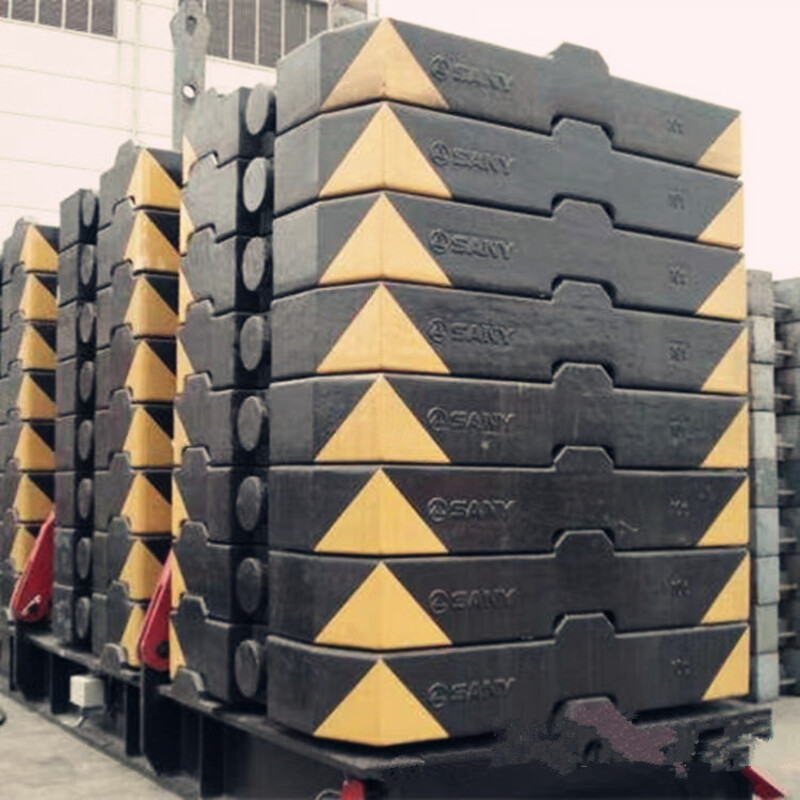excavator、Forklift Counterweight
excavator counterweight weight
Excavator counterweights are heavy components attached to the rear of an excavator to counterbalance the weight of the machine's front-mounted digging arm and bucket. These counterweights are typically made of materials like cast iron or steel, and their primary function is to enhance the stability and balance of the excavator during operation. They help prevent the machine from tipping over while digging or lifting heavy loads, ensuring safer and more efficient operation.
Forklift Counterweight:
Forklift counterweights are used in forklift trucks to improve stability and prevent tipping. These counterweights are usually located at the rear of the forklift, opposite the forks, and are designed to counterbalance the weight of the load being carried by the forks. Forklift counterweights can be made of various materials, including cast iron, steel, or concrete, depending on the forklift's size and capacity. They play a crucial role in maintaining the forklift's stability and preventing accidents, particularly when lifting heavy or bulky loads.




How to choose a good excavator, forklift weight?
Choosing the right counterweight for an excavator or forklift is crucial to ensure safe and efficient operation. Here are some key factors to consider when selecting a counterweight:
Machine Size and Capacity: The counterweight should be appropriately sized for the machine's weight and lifting capacity. A counterweight that is too light may compromise stability, while one that is too heavy can strain the machine's components.
Application: Consider the type of work the machine will be used for. For example, heavy-duty excavation work may require a heavier counterweight than light-duty landscaping.
Material: Counterweights are typically made of cast iron, steel, or concrete. Each material has its advantages and disadvantages, so choose based on factors like cost, durability, and weight.
Installation: Ensure that the counterweight is compatible with the machine's mounting system and can be installed securely.
Safety Features: Look for counterweights that have additional safety features, such as built-in guards or sensors, to prevent accidents and injuries.
Cost: Consider the cost of the counterweight relative to its benefits and the overall budget for the machine.
By carefully considering these factors, you can choose a counterweight that enhances the performance and safety of your excavator or forklift.
